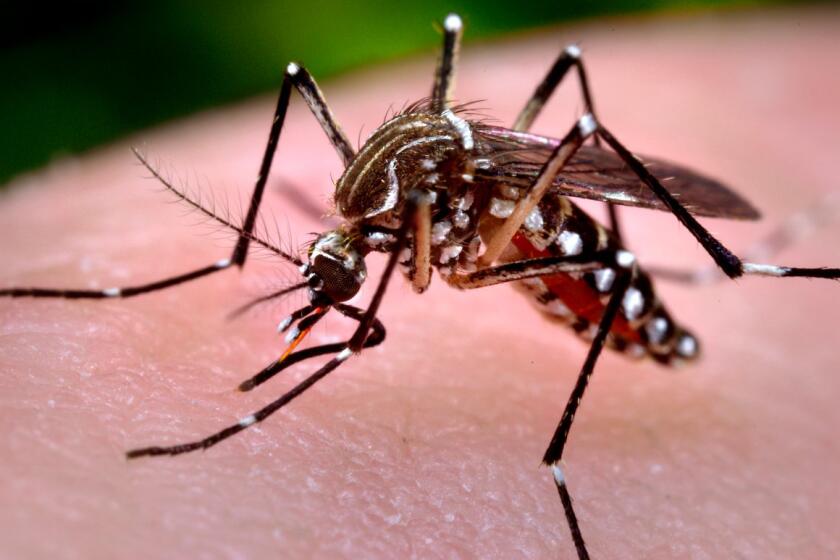Breastfeeding May Protect Moms From Diabetes
Dr. Alison M. Stuebe suspected that something good was happening to her patients who breastfed their children, something beyond the known health benefits.
She noticed that diabetic mothers who nursed their infants required less insulin than those who used formula. Perhaps, she thought, lactation protects women from Type 2 diabetes, a disease that is dangerously on the rise across America.
The Boston physician obtained diabetes data on 150,000 women who had given birth from the Harvard-run Nurses’ Health Study, which has tracked thousands of nurses’ diet, exercise and health since 1976.
“Lo and behold, when we plugged in lactation duration and the risk of diabetes, there was a clear dose response -- the longer a woman breastfed, the lower her risk of diabetes,” said Stuebe, who specializes in maternal-fetal medicine at Brigham and Women’s Hospital. The research took into account and controlled for factors including weight, diet and exercise.
To Stuebe, who breastfed her son during her medical residency, the finding carries a strong message not only for new mothers but for society.
“This isn’t just about breastfeeding women, but their families and friends and people in the park who give you dirty looks when you breastfeed your baby,” she said.
“This is an important issue.”
Stuebe cautioned that her study -- published recently in the Journal of the American Medical Assn. -- must be replicated in a broader population than nurses before the link between breastfeeding and diabetes could be considered definitive. Nurses -- who tend to be more health-conscious than average Americans -- may be doing something else to prevent diabetes that escaped researchers’ notice, Stuebe said.
Biological mechanisms behind the apparent phenomenon also demand study, she said, perhaps by comparing blood samples of women who breastfeed and those who don’t.
People with Type 2 diabetes don’t produce enough insulin -- a chemical that breaks down glucose, a sugar, into a usable form -- or their cells don’t use the insulin the body makes. High blood glucose can damage the eyes, heart, kidneys and circulatory system.
Stuebe and her colleagues found that for every year a woman breastfed, her risk of developing Type 2 diabetes within 15 years of delivery dropped 15%. A woman with two children who breastfed each for six months lowered her risk by 15%.
Whether the benefits last longer than 15 years is open to question, though Stuebe suspects they wear off.
Breastfeeding has grown in popularity over recent decades. In the middle of the 20th century, a quarter of American mothers breastfed. Today, 70% do, with 37% breastfeeding at least six months as recommended by obstetricians, according to the U.S. Centers for Disease Control and Prevention.
The benefits of breast milk for babies are well known. They include a healthier immune system and, consequently, fewer ear infections, rashes, allergies and diarrheal illnesses. Maternal benefits include a lowered risk of breast cancer, less postpartum bleeding and an easier time losing weight after pregnancy.
Scientists might end up tracing the diabetes protection to the rapid metabolic changes that occur in a lactating woman, Stuebe speculated.
“Breastfeeding burns 500 calories a day -- the equivalent of running four to five miles a day,” Stuebe said. “It’s a huge undertaking from a metabolic standpoint. You’re transferring calories from the breast across to the milk and you’re burning calories making the milk.”
Something in those processes may hold the key.
“Stay tuned,” Stuebe said.



